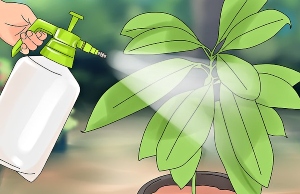 Using chemicals in the soil and water and regular spraying of synthetic pesticides can cause danger to human health and pollutants in the air. Today, farmers are rediscovering the use of so-called bio-sprays or organic insecticides, derived from organic sources which are considered environmentally friendly and causing less harm to human and animal health, and to the ecosystem.
Using chemicals in the soil and water and regular spraying of synthetic pesticides can cause danger to human health and pollutants in the air. Today, farmers are rediscovering the use of so-called bio-sprays or organic insecticides, derived from organic sources which are considered environmentally friendly and causing less harm to human and animal health, and to the ecosystem.
Growing in popularity, these bio-sprays or organic insecticides are effective alternatives to toxic, and can easily made at home. Procedures for making these organic insecticides are simple and do not require elaborate equipment.
How to make Organic Insecticides:
Luya Luya-an Root Brew
This pesticide has been tested on rice crop pests.
- Crush one kilogram of luya luya-an roots with a mortar and pestle.
- Soak the roots in water and squeeze out the juice completely
- Dilute the extract in one gallon of water and spray on pests attacking the crops.
Derris Powder-Soap Detergent
Derris or tubli plant, commonly found in Zamboanga, is a shrub with roots that yield a toxic substance called rotenone. Rotenone produced commercially contains arsenic that is detrimental to living things, while that produced by the tubli can be quickly decomposed by alkalis or nitrogen compounds. The spray is effective against borers of citrus, sweet orange, grapefruit and pomelo.
Materials necessary for making this pesticide are:
- 300 grams of detergent soap
- 120 grams of derris powder
- 20 liters of rainwater
Procedure:
- Boil the derris powder in five cups of rainwater and add finely chopped soap.
- As the soap dissolves, pour four gallons of water.
- Remove from heat then strain the liquid.
- Let it stand for a few minutes.
To control rindborers, spray the liquid on the grass of cove crops surrounding the affected trees. These cover crops serve as shelter for the borers during daytime.
Red Pepper, Lemon Grass and Agdao Leaves Extract
Extracts of red pepper (sili), lemon grass (tanglad) and agdao leaves (manunggal) contain substances that repel pests.
- Produce 5 cc (about five tablespoons) of juice from each of the plants mentioned.
- Mix the 20 cc of juices with four liters of water.
- Shake gently before spraying on pests that attack rice crops.
This pesticide is said to be 87% effective.
Tobacco Water Brew
Extract from tobacco stems are effective against vegetable pests because of nicotine.
- Cut the stems into pieces, then place in boiling water just enough to submerge the pieces.
- Let stand for several hours to cool.
- Mix this brew with water—1 part brew to four parts water.
- Spray on vegetables only if pest attack is serious.
This spray may prove fatal to eggplant, tomato and pepper.
Source: www.trc.dost.gov.ph; Photo: www.wikihow.com